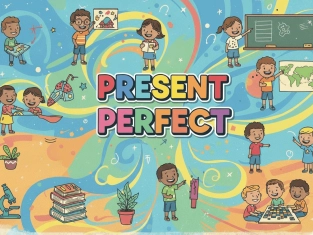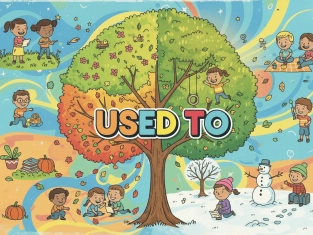Modal verbs
Table of Contents
Exercises
Explanation
|
Modal Verb |
Meaning / Use |
Examples |
|
can |
ability / permission |
I can swim very fast. Can I use your phone? |
|
could |
past ability / polite request / possibility |
I could ride a bike when I was six. Could you open the door, please? |
|
may |
permission / possibility (formal) |
You may come in now. It may rain this afternoon. |
|
might |
small possibility |
We might see a rainbow later. She might be at the café now. |
|
must |
obligation / strong rule |
You must wear a seat belt. Students must be on time. |
|
have to |
necessity (external rule) |
I have to wake up early for work. We have to finish this project today. |
|
should |
advice / expectation |
You should eat more fruit. He should call his mother tonight. |
|
ought to |
advice (same as should) |
You ought to study harder. We ought to respect our parents. |
|
will |
future / promise / decision |
I will help you with your homework. It will be sunny tomorrow. |
|
would |
polite request / unreal situation |
Would you like some coffee? I would travel more if I had money. |
|
shall |
suggestion / formal offer |
Shall we start the lesson? Shall I open the window? |
|
need to |
necessity / requirement |
You need to drink more water. We need to buy some milk. |
|
needn’t |
no necessity |
You needn’t hurry, we’re early. He needn’t bring his laptop today. |
|
dare (rare) |
courage / risk |
I dare not tell him the truth.She dare ask a difficult question. |
Remember
-
No -s, -ing, or -ed endings → He cans → He can
-
Use the base form of the main verb without particle “to” → She can dance. not She can to dance.

